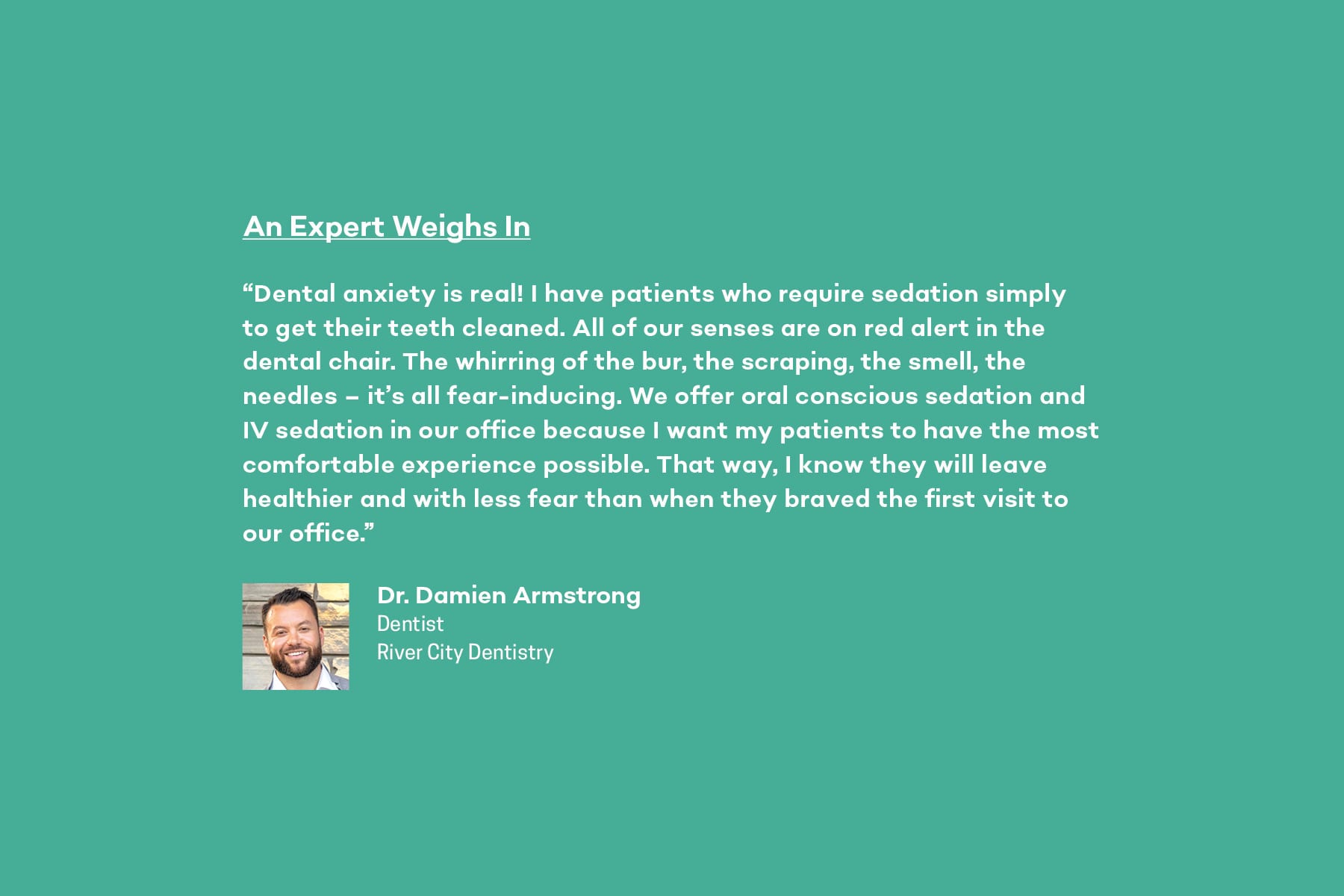Annual Oral Health Section
If just thinking about your biannual dentist appointment makes you nervous, you’re not alone. Dental anxiety is extremely common, affecting between 30 and 50 million people. There are varying degrees of dental anxiety, ranging from minor stress to severe phobia, and common causes include a fear of pain, feelings of helplessness, embarrassment, or negative past experiences.
What Can It Lead To?
If dental anxiety is extreme enough that it’s causing you to avoid dental appointments, your oral health will suffer. Skipping regular checkups can put you at a higher risk of developing dental issues that lead to dental pain. This habit of delay leads to more emergent visits and therefore an increase of stress and fear.
How to Combat It
If you have dental anxiety, taking these steps can help you manage it:
DISCOVER. Research sedation dentistry. This is the use of medication to help patients relax during dental procedures, and it requires specialty training and licensure to administer. There are differing levels of sedation ranging from minimal, where you are awake but relaxed, to general anesthesia, where you are completely unconscious. If you are a candidate for sedation dentistry, medicine can be administered to ensure a comfortable procedure.
CONSULT. Ask your dentist about the sedation options available to you. Many offices just offer nitrous oxide (“laughing gas”). Although still commonly used, the efficacy of this gas is often not enough for a patient to dissociate from an anxious experience. Medicine that puts one into a twilight mode, on the other hand, called conscious sedation, will often relieve most, if not all, anxiousness. Conscious sedation is typically administered through a pill or an IV. Following a dental procedure, most patients have little to no memory of the experience.
BE BRAVE. Make the appointment and discuss your concerns with your sedation dentist. Determine if you are a candidate for either oral or IV sedation and take the steps necessary to maintain your oral health. You will slowly but surely find yourself going to the dentist without associating these visits with fear.


